Discover the enigmatic world of Beth Togarmah in the Bible, where ancient history and mystery converge to spark curiosity.
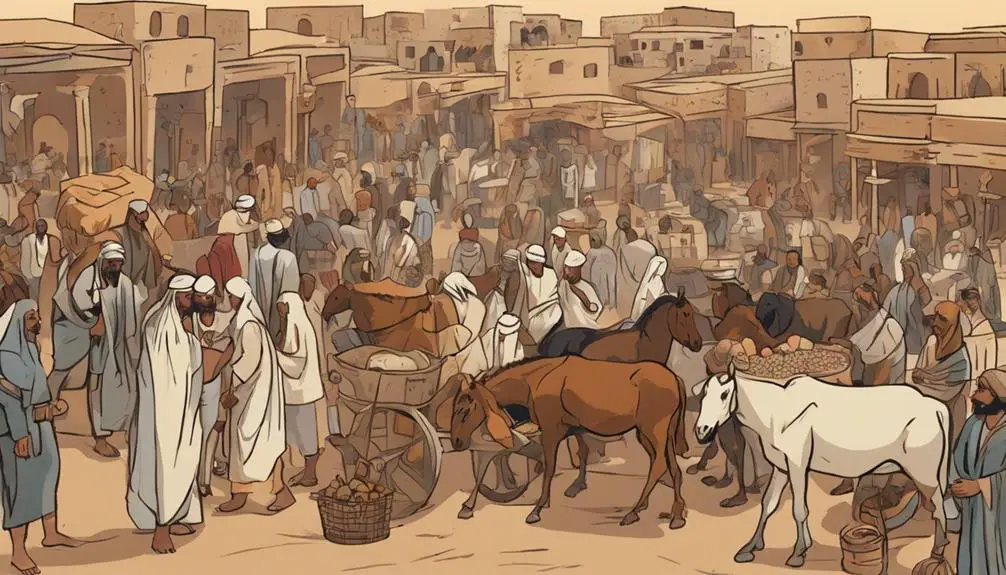
Beth Togarmah in the Bible
Have you ever stumbled upon a name in the Bible and wondered about its story?
Beth Togarmah is one such name, shrouded in mystery and scattered across ancient texts. You'll find that its historical background and biblical references open a window to a fascinating era. Its exact geographic location has been the subject of much speculation, leading scholars on a quest through time and theology.
As you explore the significance and modern interpretations of Beth Togarmah, you'll uncover layers of history that might change how you view the ancient world.
Let's embark on this journey together, discovering what secrets Beth Togarmah holds.
Key Takeaways
- Beth Togarmah is historically linked to modern-day Turkey or the Caucasus, serving as a key trade and cultural exchange hub.
- Mentioned in Genesis and Chronicles, it holds genealogical significance in the Bible, tracing back to Japheth's lineage.
- Its economic role and prophetic significance are highlighted in Ezekiel, symbolizing nations in eschatological narratives.
- Contemporary interpretations explore its relevance in end-times prophecy, influencing modern Christian thought and eschatological expectations.
Historical Background
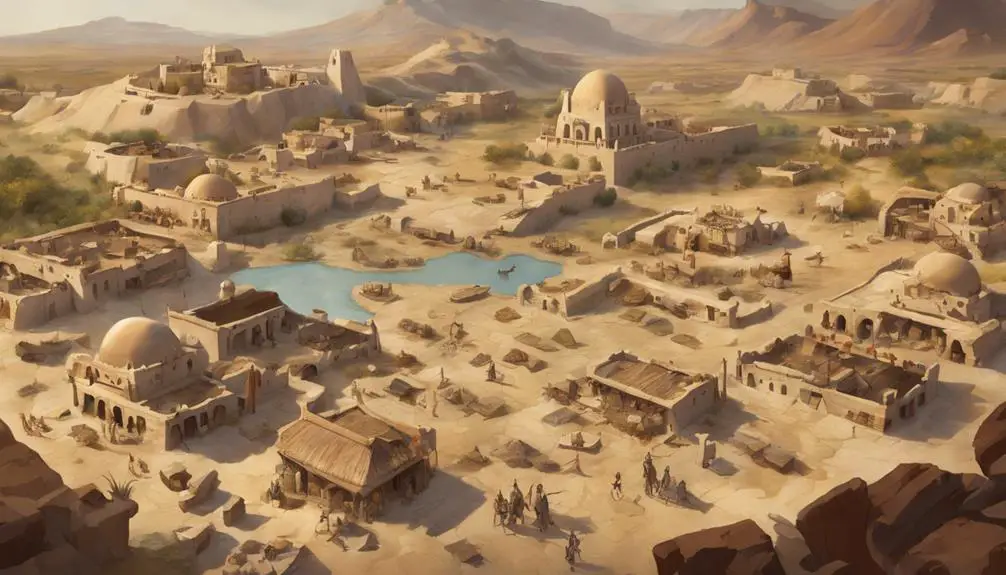
Who exactly was Beth Togarmah in the annals of history, and what role did this entity play in the geopolitical and cultural landscape of the ancient Near East? You might've heard the name in passing, but its significance is deeply rooted in the formation of ancient alliances and the establishment of trade routes that crisscrossed the known world. Beth Togarmah, often identified with a region or people in what's now modern-day Turkey or the South Caucasus, was a pivotal player in the intricate web of relationships that defined the ancient Near East.
As you delve deeper into this historical context, you'll find that Beth Togarmah's strategic position along key trade routes made it an invaluable ally and trading partner to many empires seeking dominance in the region. This wasn't merely about the exchange of goods; it was about the exchange of culture, ideas, and technology that shaped the civilizations of the time. The alliances formed with Beth Togarmah weren't just matters of economic convenience but were crucial for the military and political stability of the region.
Through these partnerships, Beth Togarmah influenced and was influenced by the major powers of the ancient world, showcasing the interconnectedness of different cultures and societies long before the concept of globalization entered our lexicon.
Biblical References
Having explored the historical significance of Beth Togarmah, let's now examine its mentions within the biblical narrative, highlighting its role and implications in ancient texts. Beth Togarmah's presence is crucial for understanding both genealogical connections and prophetic mentions within the Bible.
Reference |
Context |
Significance |
|---|---|---|
Genesis 10:3 |
Genealogy of Noah's descendants |
Marks Beth Togarmah as part of Japheth's lineage, establishing early genealogical ties. |
1 Chronicles 1:6 |
Similar genealogical list |
Reinforces its ancestral significance, underlining the continuity of its lineage within the biblical narrative. |
Ezekiel 27:14 |
Trade relations with Tyre |
Highlights Beth Togarmah's economic connectivity and its role within the wider Near Eastern trade network. |
Through these references, you're drawn into a world where Beth Togarmah is not just a location but a pivotal character within the biblical framework. Its genealogical ties in Genesis and Chronicles establish a foundational narrative, while Ezekiel's mention offers a glimpse into its economic stature, propelling its importance beyond mere ancestry. These texts collectively underscore Beth Togarmah's multifaceted role, bridging genealogical lineage with prophetic and economic dimensions within the biblical discourse.
Geographic Speculations
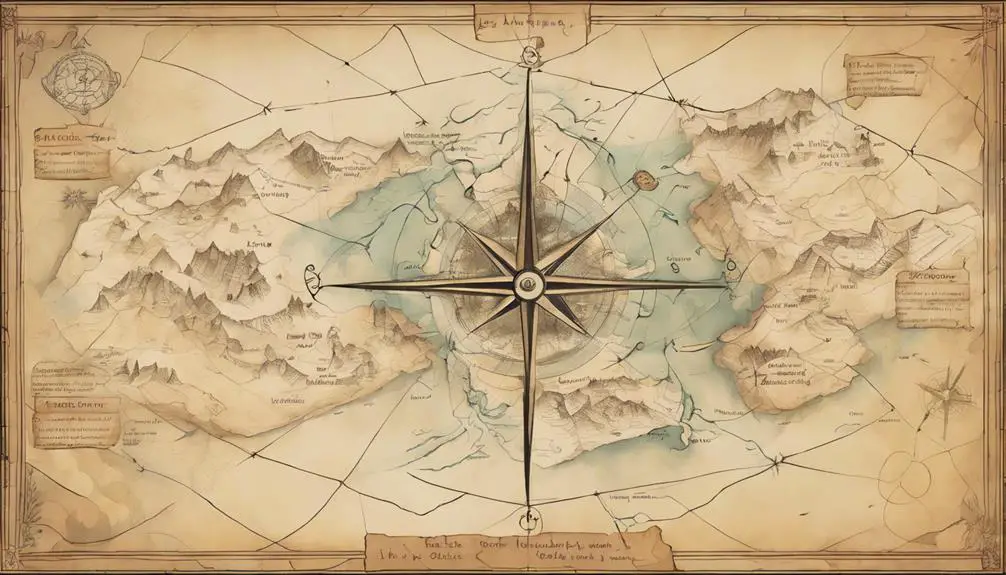
In the realm of biblical scholarship, identifying the precise geographical location of Beth Togarmah continues to spark considerable debate and analysis. Hypotheses about its location are based on a mix of historical texts, archaeological findings, and the strategic significance of ancient trade routes. The quest to pinpoint Beth Togarmah isn't just an academic exercise; it's a journey into understanding how geographical contexts shape cultural influences and interactions among ancient civilizations.
To grasp the spectrum of thought on this matter, consider these points:
- Proximity to Trade Routes: Scholars propose that Beth Togarmah was situated along vital trade routes, facilitating exchanges between the East and West, thus becoming a melting pot of cultural influences.
- Archaeological Evidence: Limited but intriguing findings suggest a connection between Beth Togarmah and regions known for their strategic and economic importance in the ancient world.
- Historical Texts: Ancient writings outside the Bible offer clues that have led some to place Beth Togarmah in the vicinity of modern-day Turkey or Armenia.
- Linguistic Analysis: The study of ancient languages and names has provided another layer of speculation, pointing towards Central Asia as a possible location.
Each of these aspects contributes to a nuanced understanding of Beth Togarmah's role in antiquity, especially regarding its location as a hub for trade and cultural exchanges.
Theological Significance
Several theological perspectives underscore the significance of Beth Togarmah, not just as a geographical entity but as a vital component in understanding biblical prophecies and narratives. By examining the eschatological connections and prophetic roles attributed to Beth Togarmah, you unveil layers of theological depth that resonate with both historical and future events as depicted in the scriptures.
The prophetic roles of Beth Togarmah, often mentioned in conjunction with end-times prophecies, offer a rich terrain for theological exploration. These references aren't mere historical footnotes but serve as a bridge connecting past events with anticipated future fulfillments. The eschatological connections of Beth Togarmah, particularly in Ezekiel's prophecy, position it as a symbol of nations aligning against divine purposes, showcasing a broader cosmic struggle between good and evil.
Understanding Beth Togarmah's theological significance requires delving into these prophetic texts, analyzing the symbolic representations, and contemplating their implications for contemporary faith communities. Such an exploration doesn't only enhance biblical literacy but also enriches the spiritual understanding of eschatology, urging believers to reflect on their place within God's unfolding plan.
Modern Interpretations
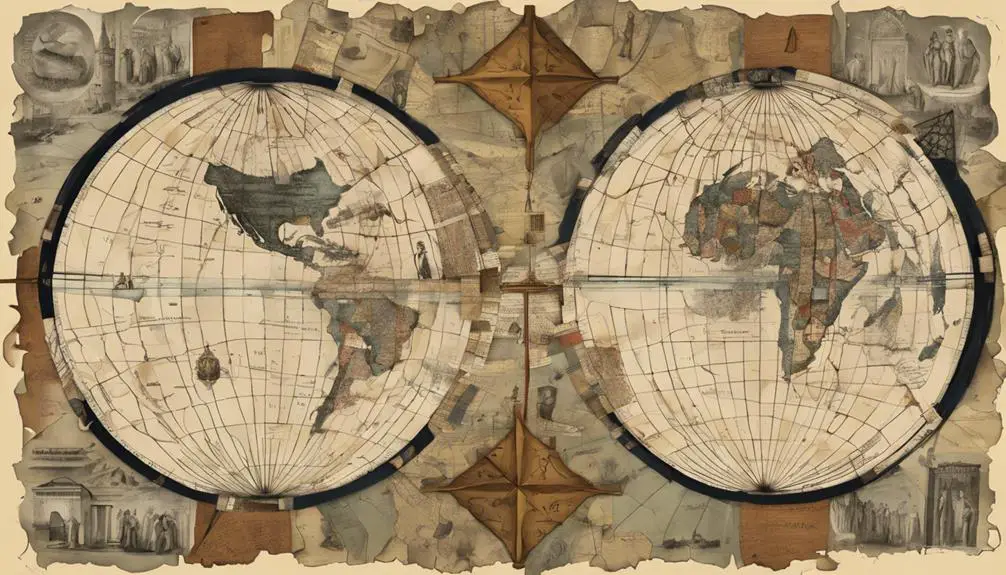
Modern interpretations of Beth Togarmah's role in biblical prophecies have sparked diverse and complex discussions among scholars and theologians, examining its implications for contemporary religious thought and eschatological expectations. You'll find that these discussions often revolve around the following key points:
- Cultural Influence: Researchers delve into how the historical and cultural context of Beth Togarmah shapes its portrayal in biblical texts. They argue that understanding this context is crucial for interpreting its significance in modern times.
- Prophetic Theories: Theories abound concerning Beth Togarmah's place in end-times prophecy. Scholars meticulously analyze scriptural passages to forecast how these ancient references might manifest in today's geopolitical landscape.
- Eschatological Expectations: There's a keen interest in how interpretations of Beth Togarmah align with or diverge from traditional eschatological views. This includes examining how different denominations perceive its role in the unfolding of end-times events.
- Theological Implications: The discussions extend to the theological implications of these interpretations, questioning how they influence contemporary Christian thought and practice.
In your journey through these deliberations, you're engaging with a dynamic and evolving field that bridges ancient texts and modern concerns, deeply rooted in a desire to understand the past's influence on the present and future.
Frequently Asked Questions
How Has the Concept of Beth Togarmah Influenced Modern Geopolitical Relationships or Conflicts?
You might wonder how ancient concepts influence today's geopolitics.
The idea of Beth Togarmah, though rooted in biblical narratives, subtly affects modern diplomatic alliances and trade routes.
It's not about direct mentions but the strategic locations and historical ties implied.
These references guide current geopolitical strategies, shaping partnerships and conflicts alike.
Understanding this connection offers deep insights into why certain regions align or oppose each other on the global stage.
Can the Lineage of Beth Togarmah Be Traced Through Contemporary Genetic or DNA Studies?
You might wonder if contemporary genetic or DNA studies can trace lineage back to ancient populations. Genetic markers and archaeological evidence play crucial roles in this research.
While genetic markers offer insights into biological heritage, archaeological evidence provides context about historical migrations and settlements. Together, they could potentially uncover connections to ancient lineages, but it's a complex task that requires correlating genetic data with historical and archaeological records.
Are There Any Unique Cultural Practices or Traditions That Have Been Directly Attributed to the Descendants of Beth Togarmah?
Peeling back the layers of time, you unearth a mosaic of cultural practices, yet attributing them directly to the descendants in question demands rigorous historical accuracy and archaeological evidence.
This analytical journey uncovers no concrete link, as traditions evolve, blending indistinguishably over millennia.
Your quest for a direct lineage through unique cultural practices or traditions remains shrouded in the complexities of human history, challenging yet fascinating in its pursuit of clarity.
How Has the Representation of Beth Togarmah Varied Across Different Religious Texts Outside of the Bible, Such as in Islamic or Jewish Historical Writings?
You're exploring how Beth Togarmah is depicted across various religious texts beyond the Bible. Islamic parallels and Rabbinic interpretations provide a nuanced view, often diverging in detail and emphasis.
Islamic texts might align or contrast with Biblical narratives, offering unique perspectives or reinforcing existing ones. Similarly, Rabbinic writings delve deeper, sometimes offering allegorical or mystical insights.
This multifaceted representation enriches your understanding of Beth Togarmah's cultural and religious significance.
What Role Does Beth Togarmah Play in Eschatological Theories or End-Time Prophecies Within Various Christian Denominations?
You're exploring how different Christian denominations interpret Beth Togarmah's role in end-time prophecies. Theological interpretations diverge, offering a range of symbolic meanings.
Some view it as representing nations opposing God's people in the last days, while others see deeper, spiritual battles depicted.
This analysis requires a nuanced understanding of eschatological theories, where Beth Togarmah's role varies significantly, reflecting the diverse ways Christians perceive and predict the unfolding of the end times.
Conclusion
In your exploration of Beth Togarmah, you've traversed historical landscapes and biblical texts, pinpointing its elusive geographic position and unraveling its theological layers.
Modern interpretations, juxtaposed with ancient narratives, illuminate this entity's multifaceted significance.
Here, amidst the digital archives of our time—an anachronism in itself—you've engaged with a discourse that bridges millennia.
This analysis not only enriches your understanding of ancient scriptures but also highlights the enduring relevance of these texts in contemporary scholarly dialogues.

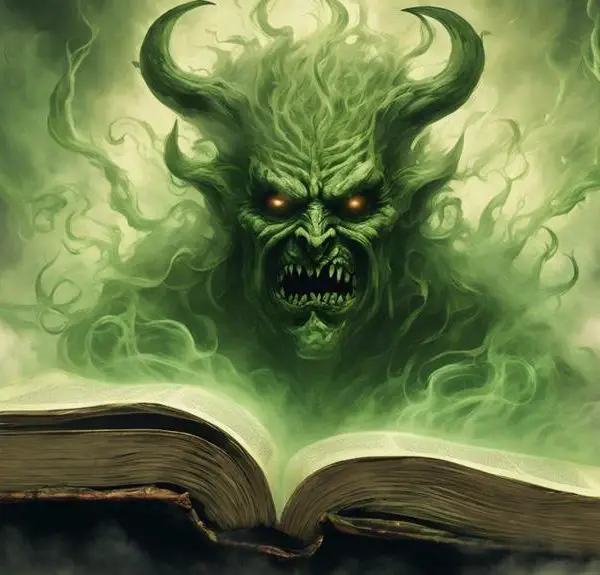
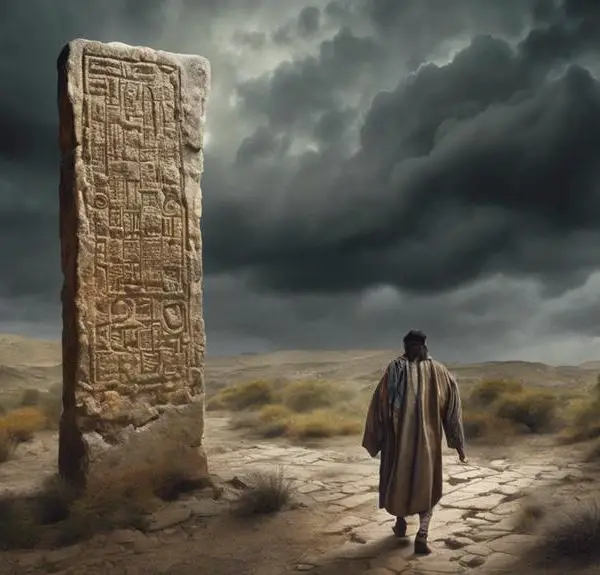
Sign up